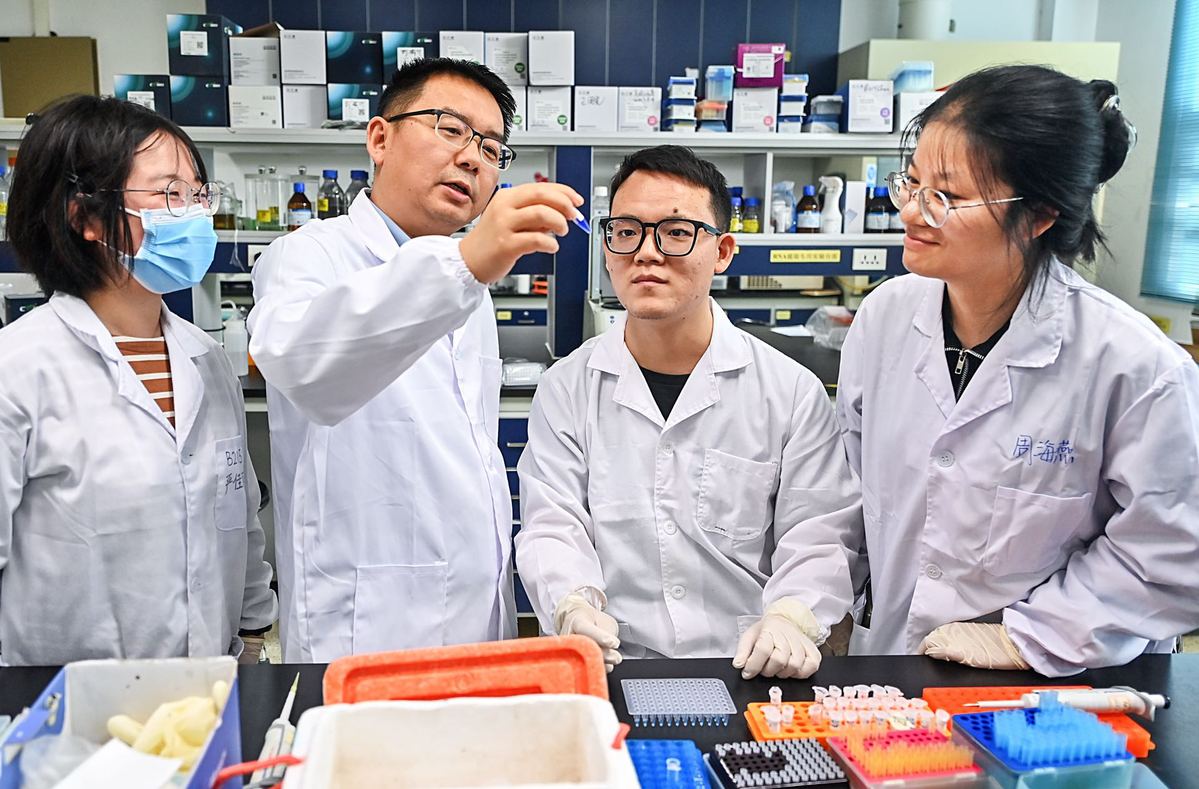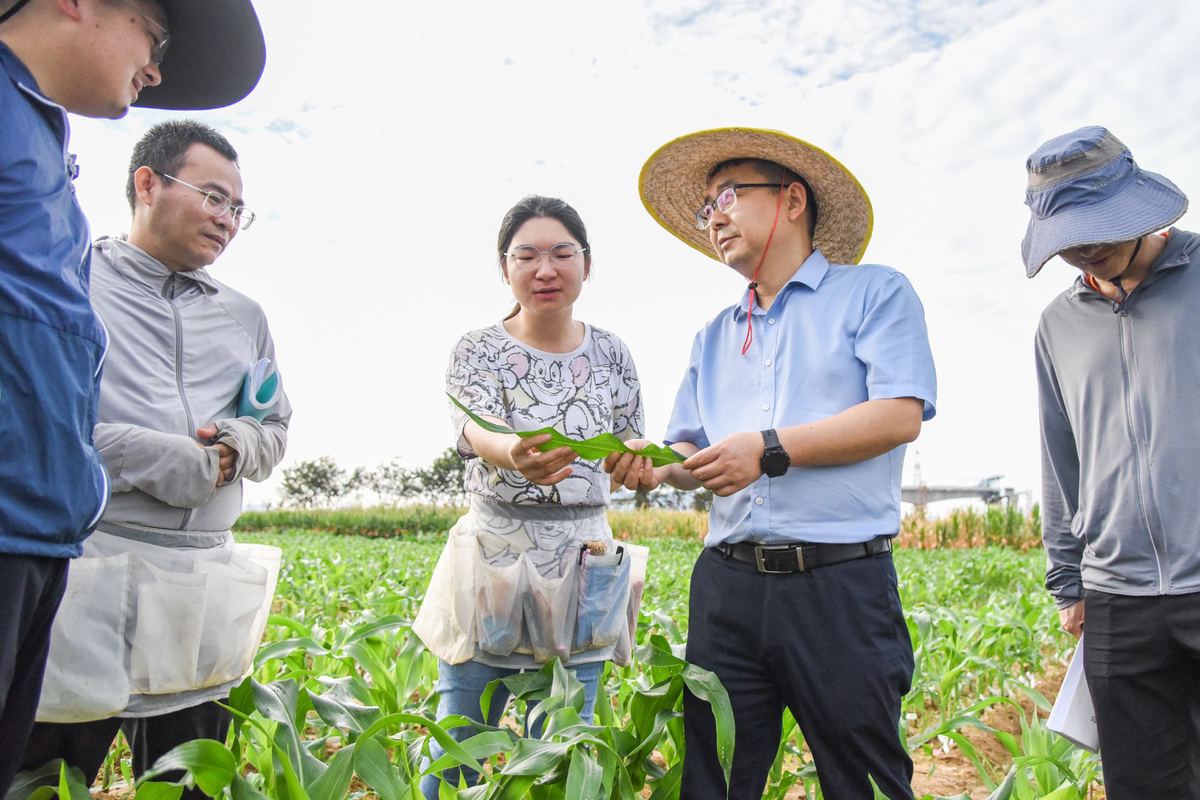 [Photo provided to China Daily]
[Photo provided to China Daily]
A recent research breakthrough by Chinese scientists allows for a reduction of around 7 percent in the moisture content of maize kernels at maturity, facilitating mechanical harvesting and threshing.
This week, the journal Cell published online a research paper titled "A Zea genus-specific micropeptide controls kernel dehydration in maize" by the team led by Yan Jianbing, professor of Huazhong Agricultural University.
The dehydration rate of maize kernels can impact the efficiency of mechanical harvesting. Maize kernels suitable for mechanized harvesting require a moisture content less than 25 percent, but most maize varieties in China typically have a moisture content at harvest between 30 and 40 percent, according to the research team.
The team studied the gene responsible for controlling the dehydration rate of maize kernels, pinpointing a specific DNA sequence and further uncovering the mechanism through which it operates and influences the dehydration rate.
 [Photo provided to China Daily]
[Photo provided to China Daily]
This discovery enables rapid dehydration of kernels before maturity without affecting yield, providing a new approach for precise regulation of kernel dehydration in the next steps.
"After adjustment, the moisture content at the time of maize harvesting can be reduced to approximately 23 percent. On average, the moisture content can be reduced by around 7 percent compared to ordinary maize, apart from being influenced by different climates and varieties," he said.
He said that once this technology is implemented, direct threshing can be achieved during harvesting, reducing to some extent the proportion of breakage and loss during maize harvesting and increasing yield.
"This essentially saves costs in maize production or increases additional income, benefiting the common people," Yan added.
(点击阅读原文)